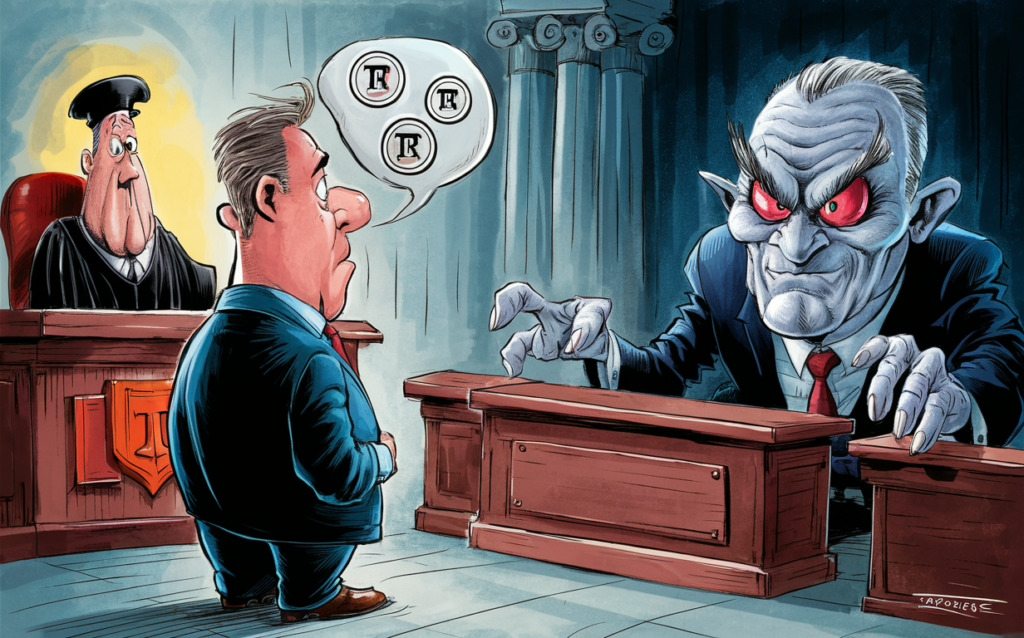In theory, trademarks were created to protect consumers from confusion and to encourage companies to build trustworthy brands.
In practice, trademarks — especially those based on generic words — have become weapons.
Weapons used to cheat a broken system, block competition, and maintain market dominance by unfair means.
Today, a growing number of corporations are abusing trademark law not to protect innovation, but to prevent it.
Trademarks Were Meant to Protect — Not to Monopolize
The original idea behind trademarks was simple and good:
✅ A company builds a reputation.
✅ The trademark ensures customers can recognize and trust that company’s products.
✅ Competitors are free to innovate and offer alternatives — but not by pretending to be someone else.
But something changed.
Now, companies trademark generic, everyday words — words like “entrepreneur,” “urban,” “the office,” or even “superhero” — and use them to claim ownership over entire industries.
The goal is no longer about avoiding customer confusion.
It’s about blocking anyone else from even entering the market.
The Abuse of Generic Trademarks
Imagine trying to create a blog called “Entrepreneur Insights” — only to be hit with legal threats because one company claims it owns the word “entrepreneur” in the media space.
Or building a comic book series about young heroes, only to find out “superhero” is co-owned by two giant corporations.
This isn’t protecting creativity.
This is suffocating it.
When generic terms — the building blocks of communication — are locked behind trademarks:
- Entire categories become closed off.
- New businesses are scared into silence.
- Small innovators can’t afford the legal fight, even if they’re right.
It becomes not a free market, but a rigged market — where the biggest players pull the strings.
It is totally normal to have many companies wanting to use a generic word from a specific category (all plumbers would want to include the word plumbing in their website), when a big corporation via a trademark blocks the use of that word in that category, they are assuring themselves search engine dominance, and it does not stop there, as these big corporations keep expanding the trademark by adding new categories, rendering the trademark a censorship tool giving an an unfair advantage to the trademark holder over a vast field.
To understand the danger of trademarking generic words, imagine someone granting a restaurant the trademark for the word hamburger, that will bring the end of fast food industry, as that restaurant will be able to sue every restaurant offering hamburgers. Imagine grating a trademark for the word hospital, doctor, soft drink, school, university … Luckily so far such trademarks has not been granted, but many generic words trademarks have, and here’s a small selection:
Entrepreneur, Superhero, The Office, Windows, Apple, Virgin, Delta, United, Amazon, Uber, Monster, Sun, Time, Sky, Sprint, Pioneer, Epic, Vision, Glacier, Hero, Freedom, United Healthcare, Booking, React, Face, Candy, Edge, Safari, Oracle, Galaxy, Target, Summit, Horizon, Frontier, Nation, Home, Quest, Venture, Star, Infinity, Blue, National, Pacific, Equinox, Zenith, Spectrum, Current, Capital, Prime, Bolt, Unity, Elevate, Synergy, Modern, Liberty, Ace, Diamond, Legend, Neon, Gravity, Core, Nova, Atlas, Haven, Legacy, Inspire, Pulse, Peak, Vital, Pulse, Future, Path, Global, Element, Origin, Impact, Vibe, Rise, Bloom, Aspire, Flow, Nexus, Rise, Quantum, Spark, Thrive, Velocity, Ignite, Momentum, Beacon, Bright, Strive, Clarity, Fusion, Solar, Ignite, Radiant, Cascade, Aurora, Summit, Endeavor, Propel, Gravity, Venture, Infinite, Halo, Pioneer, Sphere, Vertex.
How It Stifles the Free Market
Healthy competition is the lifeblood of the free market.
It forces companies to improve, adapt, and innovate.
When one company trademarks a generic word and uses it to threaten competitors, the consequences are devastating:
- Fewer new startups — innovators don’t want to risk lawsuits.
- Higher prices — less competition means less pressure to lower costs.
- Lower quality — without challengers, dominant brands can grow lazy.
- Cultural stagnation — important ideas and expressions get fenced off for corporate use only.
Ironically, the very system designed to foster competition now punishes those who try to compete.
Broken Laws, Broken Outcomes
Trademark law was not designed for this era of global, digital communication, an era where anyone can launch a blog or a media company.
The system is too slow, too expensive, and too easily manipulated.
- It costs millions to fight a bad-faith trademark lawsuit — even if you win.
- It’s faster and cheaper to bully smaller players into compliance.
- Courts often favor the “first to file” rather than the party with the stronger case.
Large companies know this.
They don’t always have to win a lawsuit — they just have to threaten one.
In the end, the system rewards those who exploit it.
We Need Reform — Urgently
To restore fairness and protect the free market, major reforms are needed:
- Ban trademarks on generic words no matter the industry.
- Create faster, cheaper ways to challenge abusive trademarks.
- Shift burden of proof onto large corporations when they threaten smaller players.
- Educate entrepreneurs about their rights and options.
The free market only works when everyone has a real chance to participate — not just those who can afford armies of lawyers.
Trademarks Should Serve the Public, Not Corporations
Trademarks were never meant to be weapons.
They were meant to be tools — tools for building trust and encouraging innovation.
When companies trademark common words to cheat the system and kill competition, they aren’t protecting their brands.
They are attacking the spirit of the free market itself.
Innovation deserves better.
Entrepreneurs deserve better.
The world deserves better.
